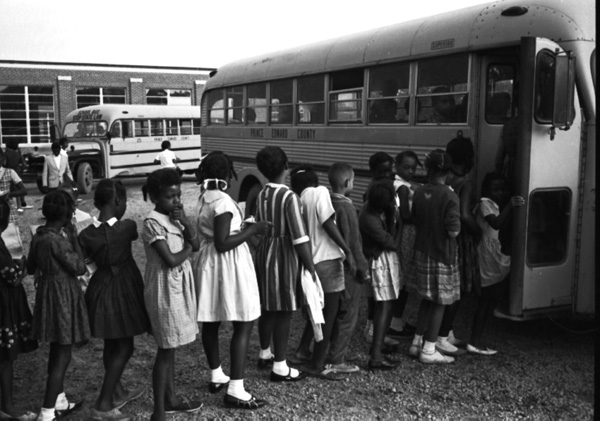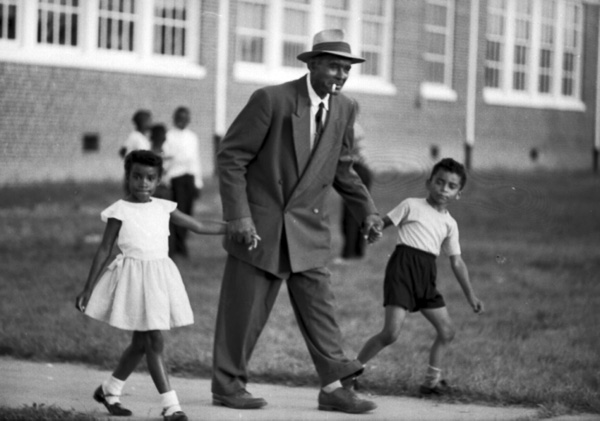Our discussion in class yesterday revolved around how major news stories become major--the question posed by Mr. Spiro Bolos was, "Why has gay marriage become an issue?" It's an interesting question to ask, and a more difficult one to answer, because as of now there has been no trigger event for this movement, that I can identify, in the last ten years. There has been no national protest against gay marriage (as in tens of thousands lined up in the street spewing hateful language) that I can specifically call to mind, and although they undoubtedly exist, I cannot put a face to a national movement in favor of gay marriage.
Several students theorized that the process of revolution and advancement of issues such as gay marriage was cyclical; there would be a build-up for a while, followed by a "trigger"event, and then focus on that issue would skyrocket. The issue would remain "hot" for an amount of time, fall out of conversation, and the cycle would repeat itself. I believe this is not the case, as the examples cited by my classmates were unconvincing to me (the Scientific Revolution, the French Revolution), but I do believe a trigger must occur for a full-fledged movement to take place. There is no face to gay marriage right now, and until there is, as with all movements towards social justice, it will be more difficult to receive attention for it.
Friday, February 18, 2011
Monday, February 14, 2011
Depictions of Unintelligent Women in Film and Literature
Recently, I was watching a James Bond film, Diamonds Are Forever (1971), and considered all the female characters involved. I also considered Doc OC's challenge posed to the class -- that throughout our reading of Adventures of Huckleberry Finn, where might we find an intelligent, or even a positive, portrayal of a developed female character.
 |
| Bambi and Thumper, at the mercy of James Bond |
who attempt to use elaborate gymnastics to kill James Bond, but both end up being dunked in a pool continuously by Sean Connery, and readily reveal the location of their evil boss.
There is no role in this film for a strong female lead, but that has a lot to do with the genre of film and the anticipated audience. Women have their piece of eye candy to ogle over in Sean Connery, and the average man's movie-going experience is highlighted by scenes of fighting and violence, as well as sexual scenes with the likes of Plenty O'Toole (in its own, a name that doesn't necessarily give a off a strong, independent feel). The purely physical value of Plenty is highlighted in this clip.
A depiction of a female in a role like this is reminiscient of a "Hair Lip"-type charcter in Huck Finn; a women inserted for mere comedy, and no more.
Monday, February 7, 2011
Racism Affecting Future Generations
In class today, Doc O'C quoted from a book he had recently read which chronicled the white and black migrations from and to the city in the earlier half of the 20th century. There was a section which mentioned Prince Edward County, in Virginia. The entire county shut down all of their public schools following unsuccessful attempts to find a way around the historic 1954 Supreme Court ruling in Brown vs. Board of Education. Many white children attended private schools, and many African-American children were bussed miles away, or did not attend school at all.
Not only was this a disservice to the communities, both black and white, of that generation, but a glance at the current economic conditions of the county in 2011 reveals how the sons and daughters were affected by this childish solution to an inexistent issue. A staggering 18.9% of the population, according the 2000 census, lives in poverty. There is no doubt a correlation to the county's embarrassing, sad history.
When a situation like this is mentioned ("I can't have it my way so no one can have it all"), a child throwing his cake on the floor because he doesn't want to share comes to mind, or a cheesy movie in which the bad guy kills the girl because he can't have her. The decision to shut down the Prince Edward school county system was a puerile reaction to a federal law, and continues to negatively affect the community.
 |
| Students boarding a bus in 1964 |
When a situation like this is mentioned ("I can't have it my way so no one can have it all"), a child throwing his cake on the floor because he doesn't want to share comes to mind, or a cheesy movie in which the bad guy kills the girl because he can't have her. The decision to shut down the Prince Edward school county system was a puerile reaction to a federal law, and continues to negatively affect the community.
Subscribe to:
Posts (Atom)
